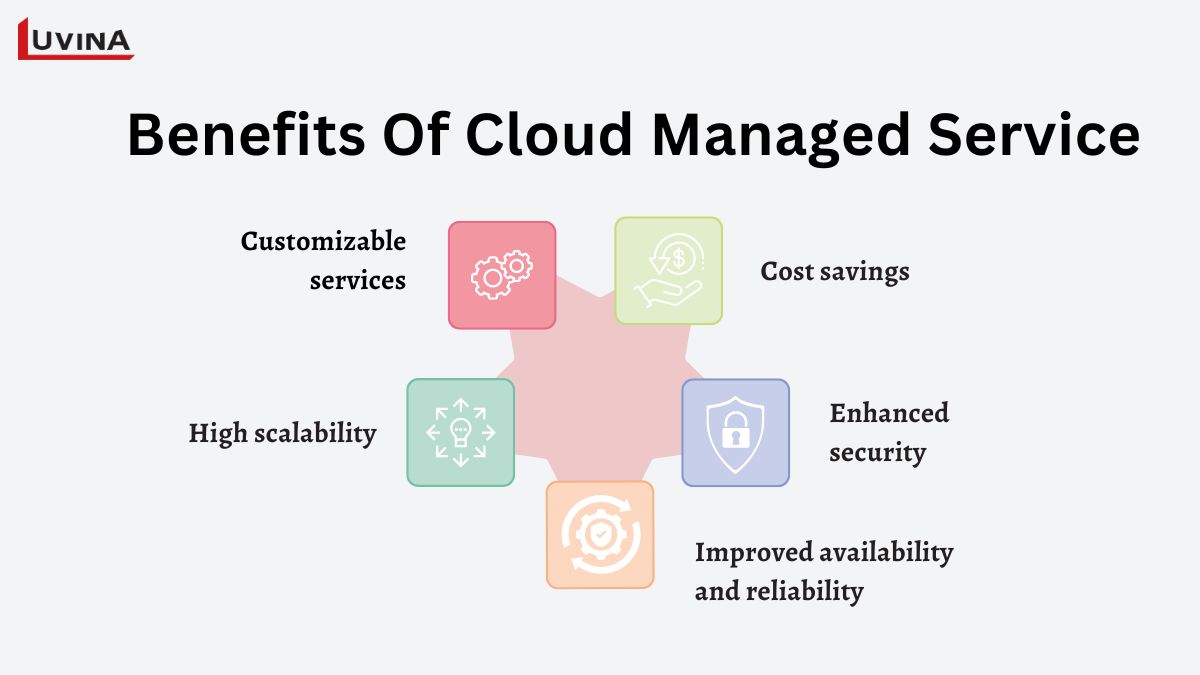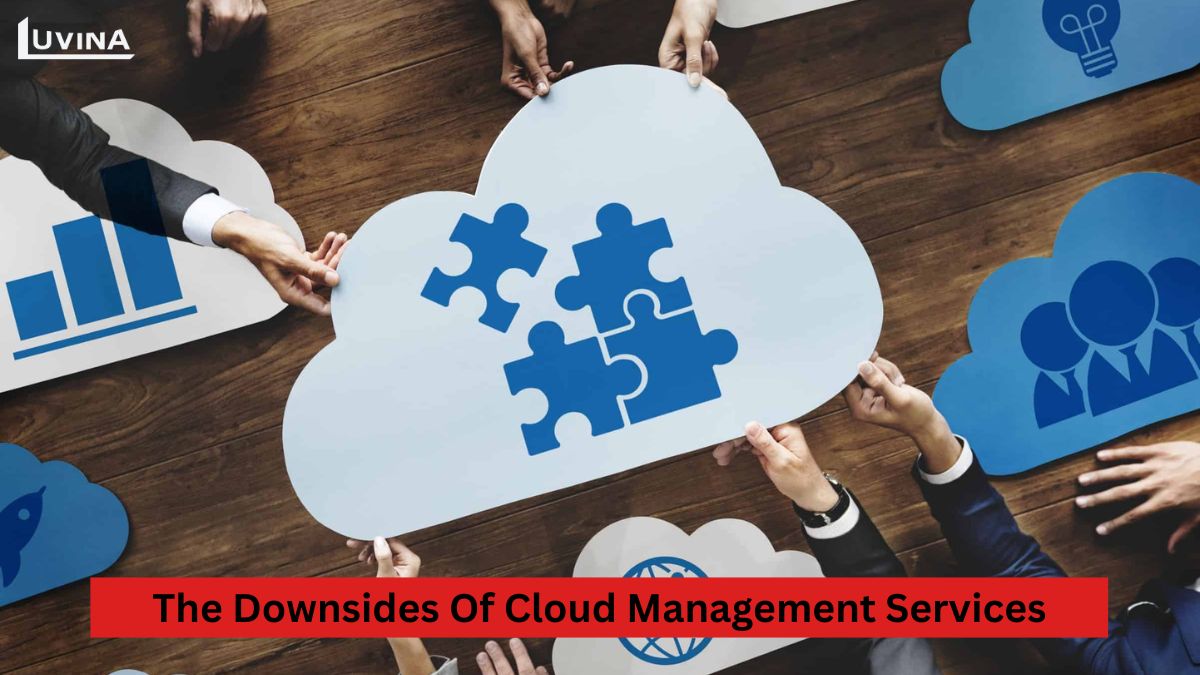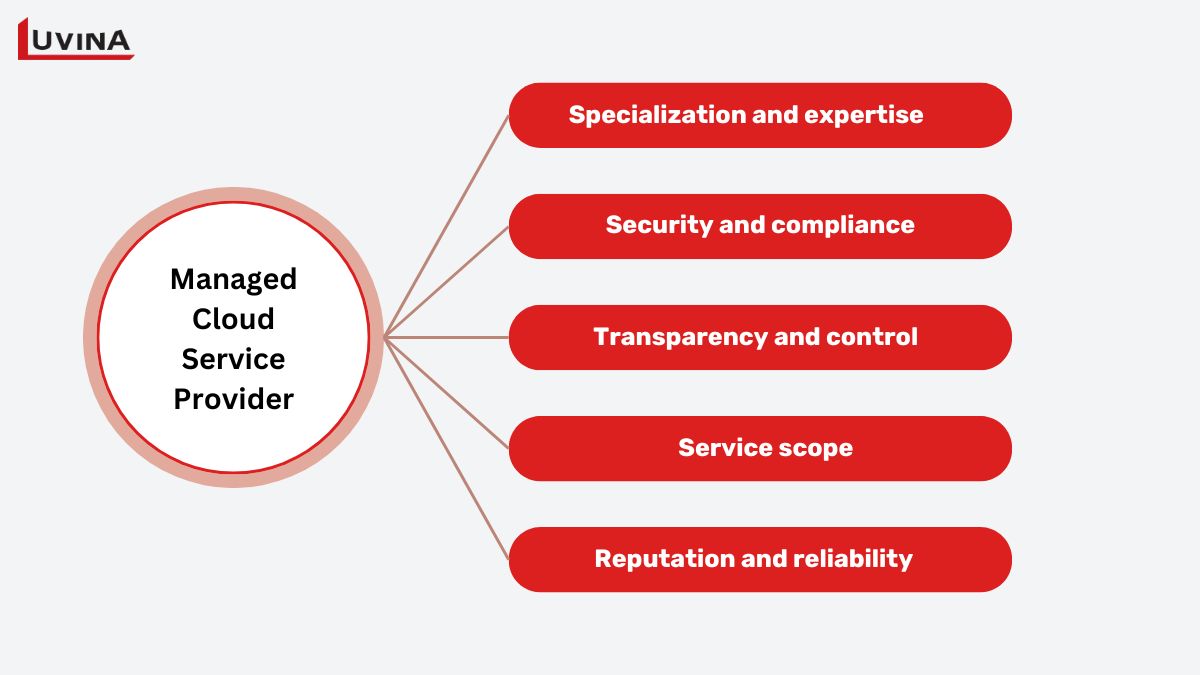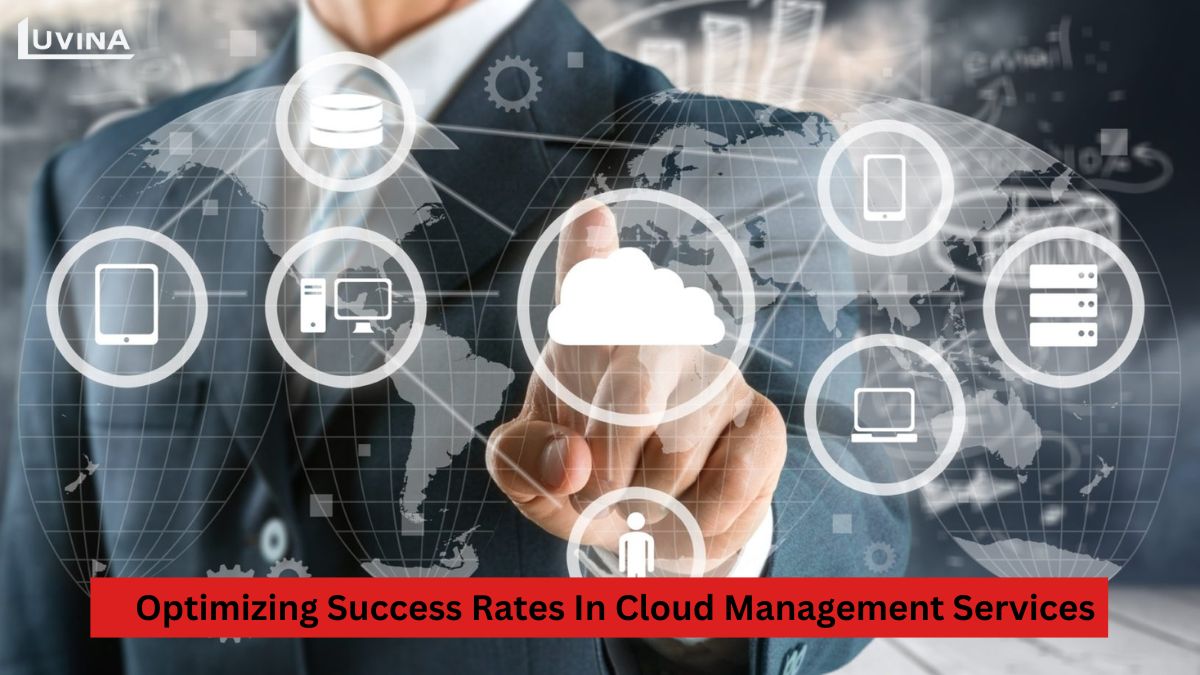The growth of managed cloud service is driven by the widespread use of cloud computing across various industries. One of the greatest benefits of professional cloud service management is that it helps ensure a business’s cloud resources operate efficiently. In addition to this, these services offer many other advantages, along with numerous challenges.
To learn more about cloud monitoring and management services, let’s explore what these services actually include, their benefits and challenges, and discover some tips to help businesses choose the best managed cloud service providers.
What is managed cloud service?
A third party provides a managed cloud service to help businesses manage some or all of their cloud resources or infrastructure. With expertise in cloud computing, the service provider ensures that the business’s cloud infrastructure runs efficiently and takes full responsibility for managing and controlling all cloud aspects. This includes tasks like moving, configuring, optimizing, securing, and maintaining the cloud environment.

Using managed cloud solutions frees organizations from the need to purchase and maintain IT resources such as servers, software, and other network components. In addition to core cloud management, providers may also offer extra support services like backup, data recovery, and infrastructure monitoring.
Benefits of cloud-managed service
The biggest and most noticeable benefit of using managed cloud service is that it frees businesses from IT-related burdens. In addition to this primary advantage, cloud-based managed services offer several other benefits:

- Customizable services: Professional managed cloud service providers can help you identify the services best suited for your business’s workload.
- High scalability: You can easily scale your cloud infrastructure up or down by adding resources when needed and only paying for what you use.
- Cost savings: Managed cloud services help reduce costs associated with managing infrastructure by optimizing cloud resources. This can be significantly cheaper than purchasing and maintaining hardware and software. Additionally, these services make it easier to monitor budgets and control IT costs.
- Enhanced security: Managed cloud service providers implement security controls to monitor threats and fully comply with regulations and standards to protect your data.
- Improved availability and reliability: Ensure reliable access to all your cloud resources. In case of system failures, services automatically switch to backup versions to maintain continuous access.
Challenges of Managed Cloud Services
Managed cloud service brings many benefits to a business but comes with several challenges. The first ones include the issues related to security. Where enhanced security is one of the key advantages of managed cloud services, a business should still take the required measures to ensure its data is well-protected. Moreover, sometimes, it’s hard to switch over to another provider, as some cloud providers make it difficult. It is highly advised that businesses follow a multi-cloud approach, working with several different providers to avoid dependency on one single provider.

Another challenge that exists is that of compliance. The industry and related regulations may ask for different levels of compliance that become tricky to adhere to in the cloud. Then, there is the cost factor. While cloud monitoring and management is going to reduce most of the costs related to infrastructure, software, and hardware, they may also result in overshooting budgets. But most service providers do have pay-as-you-go plans, so cost generally isn’t a major challenge with managed cloud services.
Key Factors to Evaluate When Choosing a Managed Cloud Service Provider
Probably one of the biggest decisions in managed cloud services is the provider. With so many providers and huge varieties of services to choose from, it might be confusing sometimes, and more so if you’re new to cloud monitoring and management. Here are some key criteria that need to be considered while choosing a provider:

Specialization and expertise
The best cloud service provider for your needs ought to be well-conversant with your cloud infrastructure and your industry. They should know the best practices within the industry, integrate any necessary tools or applications, and, on your behalf, optimize workflow to these cloud resources.
Security and Compliance
Look at the security and compliance capabilities of any considered cloud provider first. These typically are genuinely impossible areas to manage for any business. Make sure the provider is capable of enabling security and compliance functionalities beyond what a business can accomplish independently.
Transparency and control
Letting someone else handle your cloud is not a small thing, and you will literally give them full access to your data and control over your cloud functions. Make sure you choose a transparent provider about how they offer service delivery. Experts advise working with a provider who is willing to work collaboratively with your internal team and guide them to understand service management. With transparency, you can be less dependent on the provider and get the exact services for which you have to pay.
Service scope
You should always choose a provider that offers a wide range of services. Ensure it includes exactly what you need, from basic infrastructure management to application-specific management and security services. To confirm that the provider can meet all your needs, consider the types of workloads and applications you need to run, as well as your organization’s level of technical expertise when selecting a cloud service provider.
Reputation and reliability
Another important factor to consider is the reputation and reliability of the cloud managed service provider. Some providers share information about their projects, case studies, qualifications, certifications, and achievements. This information can help you assess the provider’s credibility and reliability over time.
However, if this information is not publicly available, you can research the reputation of the provider in the marketplace. Customer reviews and case studies will give you an idea of the reliability of the provider and its performance.
Managed Cloud Services Best Practices
Following best practices is essential to ensure successful of managed cloud services. Here are some basic practices to consider.
- Detailed and comprehensive planning: Before moving to the cloud, thoroughly analyze your current plans and define your business goals. Make sure cloud migration aligns with your organization’s goals and consider potential challenges.
- Safety and compliance management: Maintaining strict security and compliance requirements to protect against risks and comply with regulations. Work with your service provider to implement robust security measures including risk identification and incident. Regularly review and update your security controls.

- Optimization and cost management: Efficiency and cost management is essential. Identify inefficiencies to reduce waste and analyze pricing strategies to save costs.
- Regular performance monitoring: Use powerful monitoring tools to manage your cloud performance. Regularly review performance metrics to identify areas for improvement and set up alerts for potential issues.
- Disaster recovery plan: Develop and test a comprehensive disaster recovery plan. Keep important data on a regular basis and ensure that your return procedures are well documented and can be executed quickly in the event of an unexpected event.
- Effective communication and communication: Clear communication with your managed cloud service provider is essential to success. Schedule meetings, use clear communication channels, and set up procedures for resolving issues in a timely manner. Share your goals and feedback to ensure strong alignment and support.
- Staff training: Invest in training for your IT staff to keep them abreast of the latest cloud technologies.
Luvina’s Managed Cloud Solutions
Through the above article, you should now have a better understanding of cloud monitoring and management, including its benefits, challenges, and best practices to leverage this type of service fully. One key factor in the effectiveness of cloud service management is choosing the right provider. A good cloud service provider should meet your business needs and offer high expertise, modern methods, and affordable pricing. To meet these customer needs, Luvina currently provides two types of cloud services:
- Rehosting services: This service allows you to move application data or IT assets to the cloud without modifying the code or architecture. It is a cost-effective and secure approach provided by Luvina for transitioning to the cloud. Lift and shift can be done manually or using automated tools like AWS Server Migration Service.
- Cloud-native development services: Luvina’s cloud-native development services help create flexible, scalable software products at a lower cost and faster development speed.
- CloudOps: Managing systems on the cloud often presents challenges such as security concerns, rapid technological changes, and integration with third-party services. Luvina Software’s CloudOps services offer customized management solutions to ensure your system is secure, well-managed, and up-to-date with the latest technology. With years of experience handling complex projects across various industries, including securities, finance, and healthcare, Luvina Software is available 24/7 to ensure your system operates at peak efficiency.
Luvina is committed to delivering the highest quality service, with security as a top priority. Explore Luvina’s cloud transformation services today.
Related Posts:









Read More From Us?
Sign up for our newsletter
Read More From Us?
Sign up for our newsletter